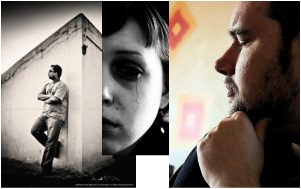
Dr. Gary Chapman emphasizes the concept of really knowing each other by describing different love languages. He identifies many different ways that we express and receive love. In relationships, misunderstandings can arise when we express love in a way that other people cannot understand. It is important to understand each other’s love languages so we can communicate in ways that will be understood. Understanding is based on communication. Dr. John Gottman, a key researcher in healthy relationships, analyzed the ways in which people communicate.
1. He found that the way we start a conversation often sets the direction of the conversation and even of the relationship itself. Dr. Gottman suggests a variety of ways to communicate that will build up a relationship, such as using supportive and understanding words and listening.
2. He also shows how communication can tear down a relationship, including the dangers of criticizing, attacking a person’s character,stonewalling, disengaging, communication breakdown or flooding the communication in the midst of conflict.
3. The main components of communication that build up or tear down are what we say and what we hear. One key to creating intimacy in any relationship is active listening. That is, listening that seeks to truly hear the person, to understand his or her perspective and to communicate back what you understood.
4. Another key to intimacy is creating a safe, trusting place for someone to share who they are and still be accepted even with differences and weaknesses. Within those safe places, differences in character need to be acknowledged and dealt with, as they often lead to conflict.
When sin entered the Garden of Eden, Adam and Eve covered themselves up with fig leaves in shame. Within our relationships we can cover our authentic characteristics with ‘fig leaves’ because we believe that we will not be accepted for who we truly are. Fear of shame and disrespect stops us from developing safe and trusting environments. Being authentic, actively listening and supporting one another’s strengths and weaknesses are all components of
healthy relationships that we can embrace. In these safe and trusting environments we can truly be relational, the way we were created to be.
Below is a discussion with two leading Professors on Relationships and the various parameters associated with a fundamental relationship ...
(premise of Dr. John Gottman Professor of Counselling Psychology)
Dr. Helen Noh Assistant Professor of Counselling Psychology
Ximena Seifert MDiv, Clinical Counselling, 2015
Siyoon Yu MDiv, Counselling, 2014
David Au MDiv, Pastoral Counselling, 2012
at Tyndale University
Helen: What are some common characteristics of healthy relationships?
David: A degree of self-knowledge…I know not all of my relationships are healthy and I know I can be self-critical.
Ximena: Boundaries. You, knowing yourself as a person, and being okay with who you are as you try to balance your attachments to others. So, you are attached to others but not enmeshed with them.
Siyoon: Not being afraid of arguing with the other person and being able to functionally resolve conflict—not to throw anything under the rug or blow things out of proportion.
Helen: What are boundaries?
David: In an intimate relationship…it’s one thing to communicate what you want…but it’s another to let go and respect him/her so he/she can have her room to process.
Ximena: I like to think of it as keeping the good in and the bad out.
Helen: Any other characteristics that you see to be vital in healthy relationships?
Ximena: I would say empathy, being really able to try to look at things from your spouse’s or friend’s perspective.
David: I learned that a child/adult needs to be free from the fear of being unloved. Having reflected on that, I would let my wife and kids know that no matter what happens I will accept them, try my best to be there.
Siyoon: It’s also helpful to understand the language the other person is speaking because the expression of love can come in a variety of different ways. I think we forgot something that’s very basic. Commitment is the number one thing.
David: It’s often contrasted with conditions, right? You’ll commit on a set of conditions that the other party will fulfill.
Helen: How do you understand the role of conflict in relationships?
Siyoon: I think argument and conflict helps a couple, gives them a chance to really see what’s going on, as well as providing a chance to strengthen that bond…and their resiliency as a couple.
David: Obviously conflicts are very intimidating. That’s why I would say eighty to ninety per cent of the time I just want to win…but in the times I am awake I would prefer to reach out to the other person…to diffuse that conflict.
Ximena: We have to role model that it’s okay to be angry and to disagree…as long as you are working it out. There are so many layers—getting to that little nugget of what this is really about takes time and maturity.
Siyoon: As well, not being afraid of emotions, that it’s okay to feel them, let them run their course.
David: On the flip side, that’s where it gets dangerous. When you let your emotions get the best of you, all of sudden that’s where the boundaries are broken down and you let the words fly.
Siyoon: I think you are right, David. Maturity comes when you can still be yourself and not let the emotion overcome you. When the relationship is young…we get a sense that the person is just like me and then when we’re faced with conflict we somehow get threatened with the differences.
David: We need to make an effort to appreciate the difference because we actually complement each other.
Helen: You hit on something important—not only recognizing someone’s differences but appreciating them. Any real tangible ways you could give people to build healthy relationships?
David: Saying very specific thank-yous. We don’t have enough thank-yous.
Ximena: Not to be afraid to show love. I think touch is so important.
Siyoon: Don’t assume too much...don’t make your own conclusions and never check them out.
Helen: Those little things, we’ve let them slide in our busy culture.
Ximena: Making time for one another, even just to look at each other.
Siyoon: Continue to get to know the person. Don’t assume the person will remain the same forever.
Helen: What do you see as some of the critical factors that may be contributing to the breakdown of relationships?
David: Options—I think we’re just accustomed to this mentality that we can choose. If something goes wrong then we can just go or tell the person to go.
Ximena: People thinking of relationships as where I can get stuff—self-serving. What I can get and very little about what I can give.
Siyoon: I think today’s society gives a bad rep to compromises. They think…if you’re compromising, then you are less worthy. A relationship is all about compromise.
Ximena: In good, healthy relationships there are times we have to sacrifice.
Siyoon: I think a relationship itself has also become an option, so now it also competes with a lot of other things in life.
Ximena: It’s going against the cultural norm—a healthy relationship.
David: I think in a relationship, talking too much can harm the relationship as well…especially talking about yourself without giving the other person time to speak, without listening to the other person. Listening is one [tangible] thing.
Ximena: I think of my background as a teacher and how even in the curriculum there is a lack of emphasis on listening. It’s not given equal importance as speaking, writing and all the other skills we teach our children, yet it’s one of the most important skills in life.
Siyoon: We’re too busy to listen, to really pay attention to relationships. We want things too fast.
Helen: Instant intimacy. Just wanting it, then we get disappointed, then we have the option so we keep moving on. What we’re left with is people who are just jaded; who think it’s never going to be found.
Ximena In that need for instant gratification…they are trying to get what a healthy relationship would give them anyway. It’s almost like they are losing before even trying. God / Spirituality/ Philosophy has designed us in a way to get those needs met within the context of a relationship.
Helen: How does the role of our relationship with Spirituality play into building healthy or even unhealthy relationships?
Siyoon: In my own experience with my boyfriend, I think being Christian gives another layer to our relationship and that’s a vision that we have for our “coupleship.” We try to envision our “coupleship” as a community in God and what God envisions for us. We can really step back and evaluate where we are going and ask if this is pleasing in God’s eyes.
David I really think that much of it has to do with God and how I’m able to draw from Him. One of my favourite passages is Isaiah 49:16: “I’ve engraved you in the palm of my hand: your walls are ever before me.” I think that’s powerful. There’s no smudging away that person in the palm of God’s hand. That’s how ingrained it is that we are in God’s hand and that’s how committed He is to us. So it’s really to allow ourselves to be in God’s presence.
Ximena: A lot of it has to do with how I view God. My beliefs and thoughts I’ve had about God have really affected my relationships with others. So, if I thought God was distant and conditional, then it was hard for me to be unconditional and really giving of myself in my relationships. As I grow in my relationship with the Lord, in seeing Him as unconditional and a Father who cares for me, that has absolutely shifted how I experience my relationships now.
Helen: At the very beginning of creation, God Himself, in the Trinity, is relational. We’ve been created to be profoundly relational, therefore it reminds us that relationships are not an option and that’s…why one of the greatest forms of punishment is isolation. We’ve been created for healthy relationships. We long, in Christ, to move toward redemption and reconciliation. We’ve been reminded of the bigger picture and to make sense of the smaller pieces.
We need to work on the small to get to the big picture.
Never forget the small pieces; if you do you will forget the other person.
Here are Ten Tips for Healthy Relationships
- Keep expectations realistic. No one can be everything we might want him or her to be. Sometimes people disappoint us. It’s not all-or-nothing, though. Healthy relationships mean accepting people as they are and not trying to change them!
- Talk with each other. It can’t be said enough: communication is essential in healthy relationships! It means— Take the time. Really be there. Genuinely listen. Don’t plan what to say next while you’re trying to listen. Don’t interrupt. Listen with your ears and your heart. Sometimes people have emotional messages to share and weave it into their words. Ask questions. Ask if you think you may have missed the point. Ask friendly (and appropriate!) questions. Ask for opinions. Show your interest. Open the communication door. Share information. Studies show that sharing information especially helps relationships begin. Be generous in sharing yourself, but don’t overwhelm others with too much too soon.
- Be flexible. Most of us try to keep people and situations just the way we like them to be. It’s natural to feel apprehensive, even sad or angry, when people or things change and we’re not ready for it. Healthy relationships mean change and growth are allowed!
- Take care of you. You probably hope those around you like you so you may try to please them. Don’t forget to please yourself. Healthy relationships are mutual!
- Be dependable. If you make plans with someone, follow through. If you have an assignment deadline, meet it. If you take on a responsibility, complete it. Healthy relationships are trustworthy!
- Fight fair. Most relationships have some conflict. It only means you disagree about something, it doesn’t have to mean you don’t like each other! When you have a problem:
- Negotiate a time to talk about it. Don’t have difficult conversations when you are very angry or tired. Ask, "When is a good time to talk about something that is bothering me?" Healthy relationships are based on respect and have room for both.
- Don’t criticize. Attack the problem, not the other person. Open sensitive conversations with "I" statements; talk about how you struggle with the problem. Don’t open with "you" statements; avoid blaming the other person for your thoughts and feelings. Healthy relationships don’t blame.
- Don’t assign feelings or motives. Let others speak for themselves. Healthy relationships recognize each person’s right to explain themselves.
- Stay with the topic. Don’t use a current concern as a reason to jump into everything that bothers you. Healthy relationships don’t use ammunition from the past to fuel the present. Say, "I’m sorry" when you’re wrong. It goes a long way in making things right again. Healthy relationships can admit mistakes.
- Don’t assume things. When we feel close to someone it’s easy to think we know how he or she thinks and feels. We can be very wrong! Healthy relationships check things out.
- Ask for help if you need it. Talk with someone who can help you find resolution—like your RA, a counselor, a teacher, a minister or even parents. Check campus resources like Counseling Services at 532-6927. Healthy relationships aren’t afraid to ask for help. There may not be a resolved ending. Be prepared to compromise or to disagree about some things. Healthy relationships don’t demand conformity or perfect agreement.
- Don’t hold grudges. You don’t have to accept anything and everything, but don’t hold grudges—they just drain your energy. Studies show that the more we see the best in others, the better healthy relationships get. Healthy relationships don’t hold on to past hurts and misunderstandings.
- The goal is for everyone to be a winner. Relationships with winners and losers don’t last. Healthy relationships are between winners who seek answers to problems together.
- You can leave a relationship. You can choose to move out of a relationship. Studies tell us that loyalty is very important in good relationships, but healthy relationships are NOW, not some hoped-for future development.
8. Keep your life balanced. Other people help make our lives satisfying but they can’t create that satisfaction for us. Only you can fill your life. Don’t overload on activities, but do use your time at college to try new things—clubs, volunteering, lectures, projects. You’ll have more opportunities to meet people and more to share with them. Healthy relationships aren’t dependent!
9. It’s a process. Sometimes it looks like everyone else on campus is confident and connected. Actually, most people feel just like you feel, wondering how to fit in and have good relationships. It takes time to meet people and get to know them…so, make "small talk"…respond to others…smile…keep trying. Healthy relationships can be learned and practiced and keep getting better!
10. Be yourself! It’s much easier and much more fun to be you than to pretend to be something or someone else. Sooner or later, it catches up anyway. Healthy relationships are made of real people, not images!
Sources :
http://www.huffingtonpost.com/2012/02/04/healthy-relationship_n_1252702.html
http://www.tyndale.ca/sites/default/files/magazine/tyndale-magazine--v-2-2.pdf
http://www.psychologytoday.com/blog/rewire-your-brain-love/200912/12-tips-mindful-resolutions-healthier-relationships-and-rewired-b
http://www.wespsych.com/relship.html
http://wespsych.com/healthy_relationship.html
http://www.k-state.edu/counseling/topics/relationships/relatn.html


 RSS Feed
RSS Feed
